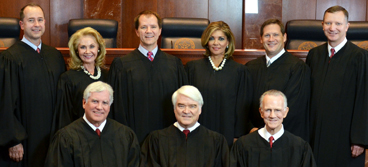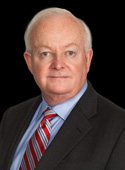© 2015 The Texas Lawbook.
By Natalie Posgate
(June 17) – Workers at thousands of Texas businesses who are seriously injured on the job due to an obviously dangerous workplace situation may find it significantly more difficult to sue their employers for damages related to the accident.
But those same workers may be able for the first time in Texas to recover even larger damage awards if they can prove their injuries were the direct result of their employers’ negligent behavior.
The Supreme Court of Texas, in a potentially precedent-setting decision issued last week, slammed the courthouse door on employees hurt while working in clearly hazardous situations for companies that opt out of the state’s worker’s compensation system, commonly referred to as nonsubscriber employers.

The justices unanimously ruled that millions of workers at the approximately 144,000 non-subscribing Texas businesses are no longer able to seek compensation under the long-standing legal theory known as premises liability.
However, five members of the state’s high court stunned lawyers in the case by stating separately in the opinion that employees should be able to recover damages if the injury could have been prevented if the employer had provided the proper equipment, training or supervision.
Such a legal claim of negligence with the potential for major damage awards against the employer has not been previously available to workers in Texas, lawyers said.
Legal experts say the ruling was intended to provide clearer guidance for litigation between workers and nonsubscriber employers.
Lawyers following the case throughout the state differ widely regarding which side – workers or businesses – got the better end of the deal.
Karl Seelbach, an Austin lawyer who represents nonsubscriber employers, said the ruling will allow many businesses, including home improvement stores, food services, food products, manufacturing, retail and restaurants, to have the lawsuits by employees dismissed sooner.

“This, in turn, should help lower the overall cost of litigation and provide defense attorneys with leverage to resolve their cases at an earlier stage,” Seelbach said.
Nonsubscriber employers in Texas include Whole Foods, Wal-Mart, Albertson’s, Taco Bell and Kroger – the nonsubscriber defendant in the Supreme Court case.
The case in question began in July 2009 when Randy Austin, a long-time maintenance employee for Kroger in Mesquite, fell while mopping a restroom floor. Kroger management instructed Austin to clean a slippery oil liquid that had leaked through the store’s ventilation ducts after another Kroger employee power-washed the store’s condenser units, according to court documents.
The Kroger handbook recommended cleaning such spills with the powdery absorbent product “Spill Magic,” which was estimated to reduce the likelihood of a slip-and-fall by 25 percent, according to court records.
Spill Magic was unavailable at the store that day, however, so Austin cleaned the restrooms with a regular mop instead. As he cleaned the women’s restroom, Austin slipped and fell, fracturing his femur and dislocating his hip.
As a result of the injury, Austin spent nine months in the hospital and underwent six surgeries, which left his left leg two inches shorter than his right, the opinion said.
Austin sued Kroger in federal court in Dallas when the grocery chain didn’t offer to compensate him at the amount he believed he deserved. U.S. District Judge Jane Boyle rejected Austin’s negligence and premises liability claims. The federal court of appeals asked the Texas Supreme Court to clarify state law on the matter.
“Employers have a duty to maintain their premises in a reasonably safe condition for their employees, but they will ordinarily satisfy their duty as a matter of law by providing an adequate warning of concealed dangers of which they are or should be aware but which are not known to the employee,” wrote Justice Jeffrey S. Boyd, who delivered the 34-page opinion.
Lawyers for Kroger contend the ruling significantly strengthens the legal position of all businesses in all future premises liability litigation involving injured workers.

“Most importantly, it dispels the misconception among the plaintiff’s bar that Texas ‘punishes’ Texas employers who opt out of the workers’ compensation system,” said Dallas appellate attorney Donna Peavler, who argued the case for supermarket giant Kroger.
While lawyers who represent workers admit the premise’s liability part of the decision is terrible for their clients, they eagerly point to the justices’ view that Judge Boyle should reconsider Austin’s negligence claim about whether Kroger is at fault for not providing Austin the “Spill Magic” product to clean up the mess.
“We have never addressed the interaction between premises-liability and an employer’s other general negligence duties. We do so now,” Justice Boyd wrote. “As Austin’s employer, Kroger owed Austin duties in addition to its premises-liability duty and its duty not to engage in negligent activities, including the duty to provide Austin with necessary instrumentalities.”
Matthew Kita, a Dallas lawyer who represented Austin on appeal, said the state Supreme Court for the first time “provided a how-to manual” for workers at nonsubscriber companies on how to get judges to allow their injury claims to move forward to trial.
“The question of whether an employer breached its duty to provide adequate equipment, supervision or training is inherently a fact-specific issue,” Kita said.
“By confirming that these duties exist separate and apart from the duty to warn of unsafe conditions on the premises, the Supreme Court assured that we are going to see a lot more of these cases going to trial, which is exactly what the Legislature intended,” he added.
Guy Choate, a San Angelo lawyer who represents injured workers, said he has mixed feelings about the court’s decision.

“It was frightening that four members of the court held that employers in Texas could create conditions so dangerous and the condition of employment so onerous that there would be no way for the employee to recover,” Choate said. “But it was heartening that five members of the court understood there could be [treacherous] conditions created for employees.”
Houston appellate attorney Peter Kelly, who wrote an amicus brief for the case on behalf of the Texas Trial Lawyers Association and in support of Austin, said he thought the opinion as a whole was “disappointing,” though he did consider the court’s decision on the necessary instrumentalities claim a plaintiff victory.
“The court seems to be edging us back to a new Lochner era,” he said. “If the employee is told to carry something past a large open flame, he can’t sue if he gets burned by the flame.

“The problem is that workers’ comp takes care of all workplace injuries,” he added. “Now, nonsubscribers have their potential for liability greatly reduced, so there is far less incentive for them to subscribe to workers’ comp, so there are fewer protections for workers. It’s not the lawsuits, it’s that the opinion undermines the workers’ compensation system.”
Peavler, Kroger’s lawyer, said she doesn’t believe Austin will prevail on his remaining claim for two reasons.
“One: Plaintiff cannot prove a mop was insufficient to clean the spill, since mops have been used successfully for decades and he himself successfully cleaned the spill in the women’s restroom using the mop,” Peavler said, “And two: Plaintiff cannot prove Spill Magic would have more likely than not prevented his fall, since it only purports to reduce falls by 25 percent.”
The case now heads back to Judge Boyle for additional arguments and consideration over the motions for summary judgment.
© 2014 The Texas Lawbook. Content of The Texas Lawbook is controlled and protected by specific licensing agreements with our subscribers and under federal copyright laws. Any distribution of this content without the consent of The Texas Lawbook is prohibited.
If you see any inaccuracy in any article in The Texas Lawbook, please contact us. Our goal is content that is 100% true and accurate. Thank you.
